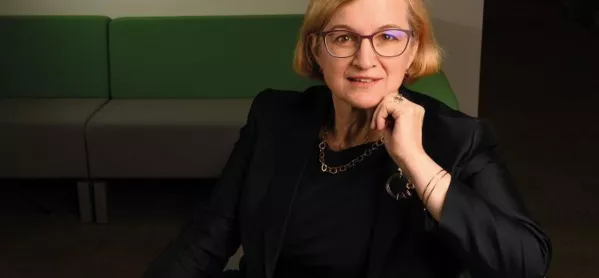Ofsted’s chief inspector Amanda Spielman has warned that there is limited accountability of multi-academy trusts and questioned why they are not inspected.
She said it was “peculiar” that MATs are not inspected over the quality of their education, governance, efficiency and use of resources.
Ms Spielman warned that Ofsted’s inability to inspect MATs meant parents had only been given a partial picture of what is happening in schools.
She added: “This presents some very real risks, which we have seen highlighted by the recent failures of some academy trusts.”
Hinds: DfE sets limits on Ofsted’s work on MATs
Exclusive: It would take inspectors 80 years to check on all trusts
Failings: Ofsted criticises MAT in new check
Ms Spielman also highlighted a lack of self-evaluation within MATs as being “a blind spot” in the system.
She has called on the Department for Education to introduce a new quality framework for trusts to measure themselves against.
Ofsted is not able to inspect multi-academy trusts but has introduced a system of summary evaluations of MATs this year.
This sees the inspectorate carry out a group of inspections of schools within the same academy trust and publish individual reports.
The overall findings are then discussed with MAT leaders before a summary evaluation report on the work of the MAT is published.
However, Ofsted does not give each MAT an inspection grade and Damian Hinds has told the inspectorate not to refer to these evaluations as inspections.
In a new post published today, Ms Spielman said: “While we have introduced a system of summary evaluations of MATs, the scope of these remains limited.
“A lack of self-evaluation at MAT level is mirrored by limited accountability of the MAT in the national system.
“As the MAT is the legal entity responsible for the education of the pupils in its schools, it seems peculiar that they are not the focus of inspection in areas such as governance, quality of education and efficiency and effectiveness of use of resources.
“This is, in the end, a decision that lies with the DfE. But we would suggest that if the DfE is going to maintain its view that we should not inspect MATs, it would be helpful if it published a quality framework for MATs to self-assess against that focuses on the impact of MATs on the quality of education.”
Ms Spielman added: “Given the power and influence of MATs, it’s important that they are properly accountable to parents. The fact that Ofsted is unable to inspect trusts directly means parents and policymakers are only given a partial view of what is happening in our schools.”
Tes revealed earlier this year that Ofsted will only check around 12 MATs this year through its summary evaluation system. To date, six trusts have been evaluated.
At this rate, it would take the inspectorate more than 80 years to look at every MAT in the country.
The most recent summary evaluation report was for Outwood Grange Academies Trust.
Ofsted produced a largely positive report about the trust but recommended it reduce its rate of pupil exclusions by continuing to improve pupils’ behaviour.
The inspectorate praised OGAT for raising standards, supporting staff, the leadership of its schools and the development of its curriculum and financial planning.
Ms Spielman’s comments follow new Ofsted research into the role of MATs.
She said a study of 41 MATs and 121 schools produced encouraging findings about the role of trusts in the system.
She said school leaders feel that MATs generally provide effective back-office support and economies of scale. Scale is also important in providing opportunities for CPD and career development.
Ms Spielman said the best MATs are driven by a strong and shared central ethos that informs what their schools do.
She added: “This does not mean that the MAT necessarily dictates what schools do. Indeed, the more an MAT is able to embed a shared ethos, the less necessary this level of prescription is likely to be.
“Many MATs have high-level policies on curriculum, teaching and learning, and behaviour. Typically, MAT-wide CPD reinforces ethos and policies.”
Ms Spielman said having this central role for the MAT inevitably leads to some loss of decision-making freedom for the individual schools.
But she added: “As many of our interviewees said, this is a price worth paying for better support on the things that matter.”





